Time for another interview and I’m pleased to announce that former Spector employee Devra Robitaille has agreed to answer some questions for Cue Castanets.
For a short time during the mid 70s, Devra worked as ‘Administrative Director’ for Phil Spector’s short-lived Warner-Spector label after getting to know him while she worked for Warner Brothers records. As we shall learn, her new job was far from a walk in the park – something she has described before in Mick Brown’s seminal book on Spector, ‘Tearing Down the Wall of Sound.’

Overall, the 70s proved to be both enjoyable and frustrating for Spector fans. On the one hand, they were served with a smorgasbord of fantastic productions, both newly recorded and unreleased gems that had languished in the vaults since the 60s. On the other hand, many planned projects failed to materialize or if they did, did not receive proper promotion.
In a decade where Spector soundalikes by ABBA, Bruce Springsteen, Meat Loaf and others were riding high in the charts, the stars seemed aligned for a triumphant comeback. It was not to be. And it didn’t help that the release schedule was both erratic and often limited to select countries, no doubt due to Spector’s increasingly difficult personality. In the midst of all this was Devra, trying to nurture both the music and business side of things.
——————————————————
Devra, thank you very much for taking your time to answer some questions about this often overlooked phase of Spector’s career.
First off, according to Mick Brown’s book you began working for Spector in 1975. He appointed you ‘Administrative Director’ of the Warner-Spector label. Looking back, how do you feel about that label?
Warner Spector started out so great. It was a brain-child of Joe Smith and Marty Machat I think, and intended to be an outlet for Phil’s music and a celebration of his production talents after some rough criticism. I remember there being high expectations. It was supposed to be a wonderful homage and great collaboration between Warner Brothers and Phil…. but unfortunately, it spiraled down for oh so many reasons.
Do you think Spector achieved what he’d set out to do when he established the deal with Warner Brothers?
Absolutely not. He was deeply disappointed and offended. He never really spelled it out to me exactly what happened, but his expression when the subject was brought up even years later spoke volumes. I am sure it was mutual, Phil was very difficult to deal with on every level.
In his book ‘Magical Mystery Tours’, Tony Bramwell who oversaw Warner-Spector from the UK, claims that Spector wanted to set up the label to release everything. According to the book, Bramwell went to LA to crate Spector’s tapes up personally in his mansion and later ran them through tests in London, preparing a reissue campaign.
I hung out with Tony a lot during this and other visits. I also spent a lot of time on the phone with him once he was back in England on Phil’s behalf setting all this up. Tony was a really great guy. I feel privileged to have known him. There was another guy too, Malcolm. I don’t remember his last name. They were both gentlemen and the real deal. I hope they remember me kindly.
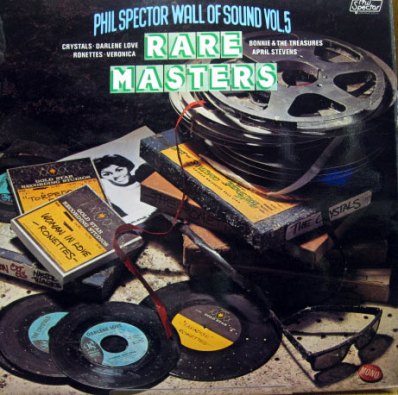
Those tapes have been the cause of much speculation among Spector fans as to what they contain. Do you remember if there were more unreleased, fully realized 60s recordings than what eventually came out on the wonderful Rare Masters vol. 1 and vol. 2 collections? According to rumors there was at least enough material for a third volume.
You are asking me to cast back a lot of years in my memory, and because of all the more recent ugliness, a lot of it has been suppressed. But I do remember there being controversy about the tapes. I never knew exactly what was on them. Phil tended to hold things hostage so he could get his own way, to try to ransom his music for deals or circumstances as a manipulation ploy and it caused a great deal of turmoil.
This may well be why Warner-Spector ended after only three years. The stealing and hiding of masters was very common at that time. I remember a lot of wrangling about this with both Leonard Cohen and Dion, and also heard rumours about the John Lennon tapes, although possibly it was John in that case. Anyway, I am sure he did hide them at Collina Drive, although I can’t prove it as I never saw them. But I doubt he would trust anyone else, even a professional tape archive.
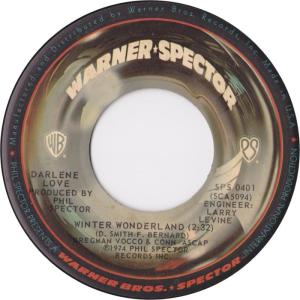
Do you recall which state Spector’s tapes were in generally? It would seem odd for him to keep them in his mansion instead of a professional tape archive? Do you know if what Tony Bramwell brought to the UK was the entire cache of tapes or just specific master tapes sorted beforehand by Spector? I wonder if tape copies still exist in the Warner archives?
That’s a very good question and I’m afraid I can’t throw any light on it for you. What I do know is that I myself personally recorded one of my own original songs at Phil’s request one night in the studio for use as a “b” side. He later named it “Roy Carr and Devra Robitaille” or some such – don’t ask me why, because that wasn’t the name of the song and I had forgotten about it until Tony Bramwell brought it up on Facebook. I have never been able to find out where the tape ended up. So one could conjecture that if there’s one that went missing there of course must be others?
You were present during the sessions with Cher in Gold Star Studios in 1975. I personally love the three songs cut; ‘A Woman’s Story’, the super slow take of ‘Baby I Love You’ and the duet with Harry Nilsson, ‘A Love Like Yours.’ ‘A Woman’s Story’ is a particular favorite of mine. Are you in the haunting backing chorus on this majestic production? Any anecdotes from the sessions you’d like to share? Were those three songs the only ones worked on?
Yes. I am singing backgrounds on the Cher and the Jerri Bo Keno tracks. I did some back-up vocals on the John Lennon album too, Stand by Me and Be Bop a Lula, I think. And of course on the Leonard Cohen as well as Dion album. I had the honor of sharing a mic with many interesting people, not the least of which was Bob Dylan. [Cue Castanets: on the Leonard Cohen album.]
I also played some keyboards, can’t remember which tracks, and my ex-husband, Bob Robitaille, who was an engineer with Motown and who owned a whole slew of lovely analog synths and would rent them out to studios, was also called in various times with his synths.
I remember Cher well. I had no idea who she was at first. Phil had a habit of just inviting people to the sessions so I didn’t realize at first she was the artist. it was a bit of a rabble usually, chaos. She just showed up, and I was on the microphone singing with this really tall girl with long straight black hair, and she kept “flipping” it and it kept hitting me in the face. I didn’t like her. Then of course it didn’t take long to realize that it was Cher! I also remember Harry Nilsson. I found out much later that an English engineer friend of mine was his engineer.
There are so many anecdotes and stories. I will save them for another time. Maybe my book? :-D
You were in charge of organizing the sessions for Dion’s ‘Born to Be with You’ album. I think it’s a masterpiece that stands up favorably to almost anything Spector did in the 60s.
Agreed! I just think some of the tracks need to be a little smidge faster in tempo, but that’s just my personal opinion. They feel to me like the sparkle is trying to come through but being dragged down – just an impression, take it for what it is.
Did Spector ever explain to you why, of all Warner Brothers artists available to him, he chose to work with Dion DeMucci?
Yes. He told me he really respected artists like Dion. He thought Dion was the real deal, really authentic. He admired that whole New York street cred kind of music and he felt a kinship with that.
I remember going to Las Vegas with Phil to see Dion perform, and when we went backstage being struck by a kind of reverence that Phil had for Dion which I had never seen in him before or even since. This was before the recordings began.
How would you describe the sessions? And do you know why the epic ‘Baby, Let’s Stick Together’ was left off the album?
Describing the sessions might have to be for another time. There is a lot to say and I don’t think you have the space! Suffice it to say that the phrase “barely controlled mayhem” usually applied, peppered with spells of sheer magic and genius. Actually, I didn’t know Baby Lets Stick Together was left off. I really liked that song.
Bruce Springsteen and Steven van Zandt paid a visit during the Dion sessions, hot on the heels of ‘Born to Run.’ How would you describe the atmosphere around their visit, seeing that they’d had a monster hit with the Spector sound?
I remember it well. I was priviledged to sing on a mic with them. Absolutely no idea what song it was as I was completely in awe of Springsteen, my own personal favourite type of music being Rock; I remember The Kessel brothers being there at the session and several others in the control room milling about. There was no gun play that night, at least none that I saw, so perhaps that is a huge compliment to Springsteen from Phil! Then again, one could say that it might have been a bigger compliment had there been…. One can only wonder.
After the Warner-Spector deal fell through, Spector launched the Phil Spector International deal with Polydor. Like with Warner-Spector, Tony Bramwell claims that Spector initially wanted to release everything. Why do you think he was keen set on that during the 70s?
To answer that one would have to have a deep insight into the complicated maze of personality that is Phil Spector, and I don’t claim to be able to unravel it all.
What I can say is what I experienced personally, and that is that Phil always very much needed validation for not only his musical creations but for himself as a person. He was too easily wounded by criticism and desperately craved approbation.
Some people are not cut out for fame, even while being addicted to it. Phil is a “perfect storm”; the perfect coming together of conditions and circumstances to create who he is and what he creates. You can’t pull the “Phil” out of Phil Spector music, it is his Soul expression. Maybe somewhere in here is the reason he always wanted to keep releasing everything.
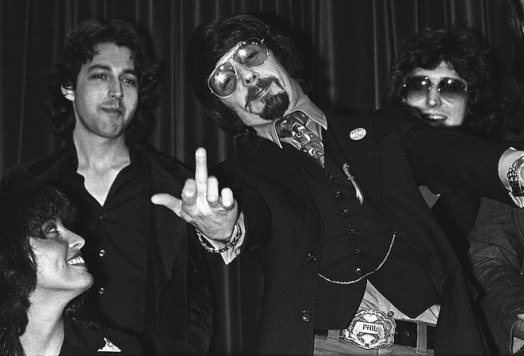
The old Phil Spector Appreciation Society newsletters report rumors of enough material for a whole Darlene Love album. Only ‘Lord If You’re a Woman’ and ‘I Love Him Like I Love my Very Life’ came out of course but allegedly 10 tracks in total where recorded.
What do you remember about this project? Did you ever hear any other tracks? If so, do you remember anything specific about them? Were they release-worthy or were they just rough recordings?
I don’t remember there being any other tracks and didn’t hear any. I was at the sessions for ‘Lord If you’re a Woman’, particularly the mixing. A great track! There was some wrangling about the tempo as I recall. Of course Phil always won.
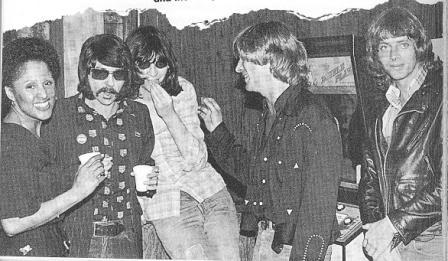
Another rumoured project in the Phil Spector Appreciation Society newsletters was a Manhattan Transfer-styled vocal group called the Brewers that Spector was supposed to have signed. What do you remember about this project? Do you think they ever got to record with him?
I don’t know anything about this group, never heard of them and don’t remember there being any sessions in that name – at least during my times.
I went back to work for Phil again in the mid eighties after I came back from England. My second tour of duty was quite tame compared to the first and only lasted a mere six months.
The Leonard Cohen album really divides Spector fans. Some like it, others hate it. Including, seemingly, Leonard Cohen himself! Looking back, how do you feel about it and the sessions that took place?
What a fantastic adventure in my life to have been involved in that project. I booked all the sessions and attended every excruciating moment! That is said with a smile though.
So many adventures, too much really to report here. I even received an album credit, the wording of which I have forgotten now, but it was a thank you from Phil for somehow keeping order in the face of all the chaos. I have the utmost respect for Leonard who was always a perfect gentleman and has so much class.
Were there any other steps taken towards recordings projects that either didn’t materialize or were left in the can?
Not that I can remember.
Did Spector for instance, to your knowledge, record more songs with Jerri Bo Keno than ‘Here It Comes (and Here I Go)’? Was there other acts he signed and worked with that the fans probably don’t know about?
I don’t know of any others, but that doesn’t necessarily mean they don’t exist.
He recorded a version of ‘Baby, Let’s Stick Together’ with the Paley Brothers that finally came out on a retrospective of theirs in 2013. Do you know if he recorded more stuff with them?
No idea.
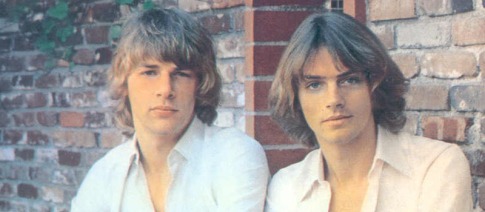
Also at this time, rare stereo versions of some of the 60s recordings became more widely available as part of reissues, for instance the songs off the lone Ronettes album. Do you think this was a decision of Spector himself or rather a case of someone involved in the reissue projects chancing it and releasing the much sought-after stereo versions behind his back?
I don’t really know, but if I had to make a guess I would say that no-one really wanted to “chance it” with Phil. His wrath was legendary, and I think he would always want to maintain control.
And finally, what are your personal top-five favorite Spector-produced recordings?
I am going to have to do some listening to rehabilitate my ears to this music. Off the top of my head though, I can say that I really liked ‘Lord If You’re a Woman’!
Debra, thank you very much for sharing your insights. I’m crossing my fingers that you’ll write a book about your adventures in the music business someday.
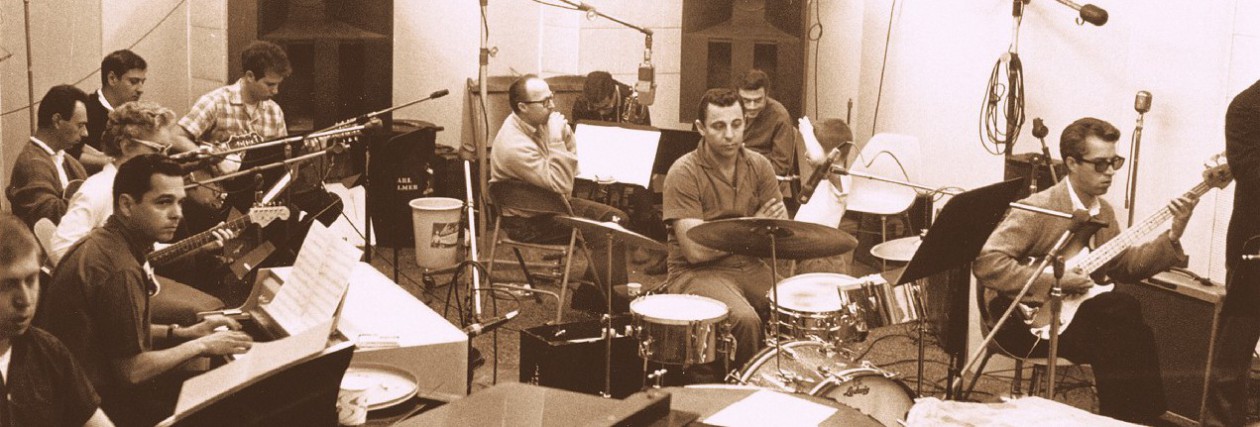
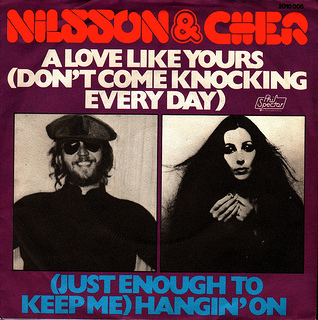
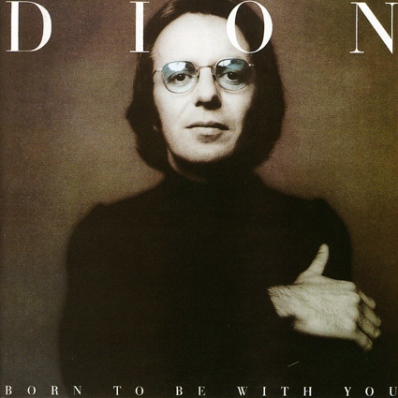
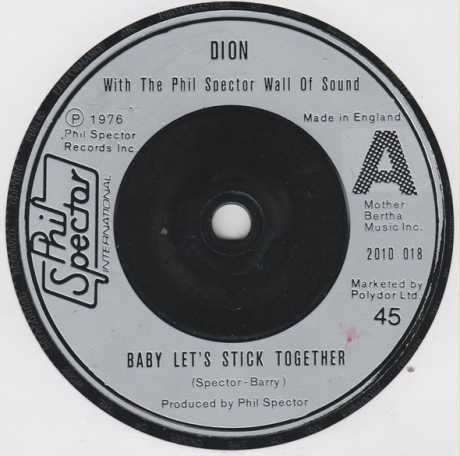
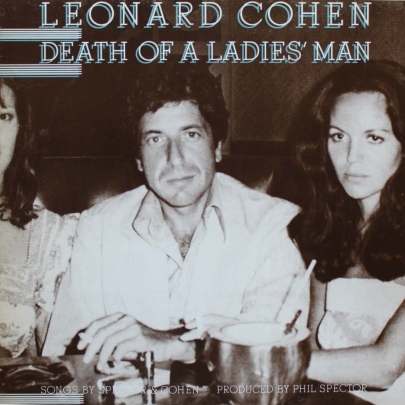
I was such a Spector fanatic back in the 70’s – couldn’t find any Warner-Spector releases in the stores at the time, though. So I wrote to Warner-Spector Records several times and Devra always responded with a personal note and promo copies of the latest 45’s, even the non-Spector ones. A gracious and nice gesture to say the least! I still have all of her correspondence on Warner-Spector letterhead/envelopes as well as her business card. Thanks for a really terrific interview with another behind-the-scenes ‘brick’ in the wall of sound!
LikeLike
You’re very welcome Steven. :-)
LikeLike
Hi
Great interview. This period of Spector’s career is fascinating and someone should try to rerelease everything on CD.
The reference to Devra’s B-side song is interesting, as the UK B-side of “Home of the Brave” was a seventies-sounding instrumental called “Bramwell, Robitaille & Carr”.
Excellent blog, too. I wonder, though, how many Spector recordings there are with castanets, especially after 1963.
Best regards
Paul
LikeLike
Very interesting Paul! I didn’t know about that B-side. I’ll let Devra know about it as well as I doubt she’s aware of it. That’s probably the recording she’s referring to.
And you’re right about the castanets-quota dropping rapidly after the initial Philles recordings! I had originally hoped to call the blog ‘Little Symphonies’ after Spector’s ‘Little Symphonies for the Kids’ braggadocio catch phrase but that name was already taken. ;-)
LikeLike